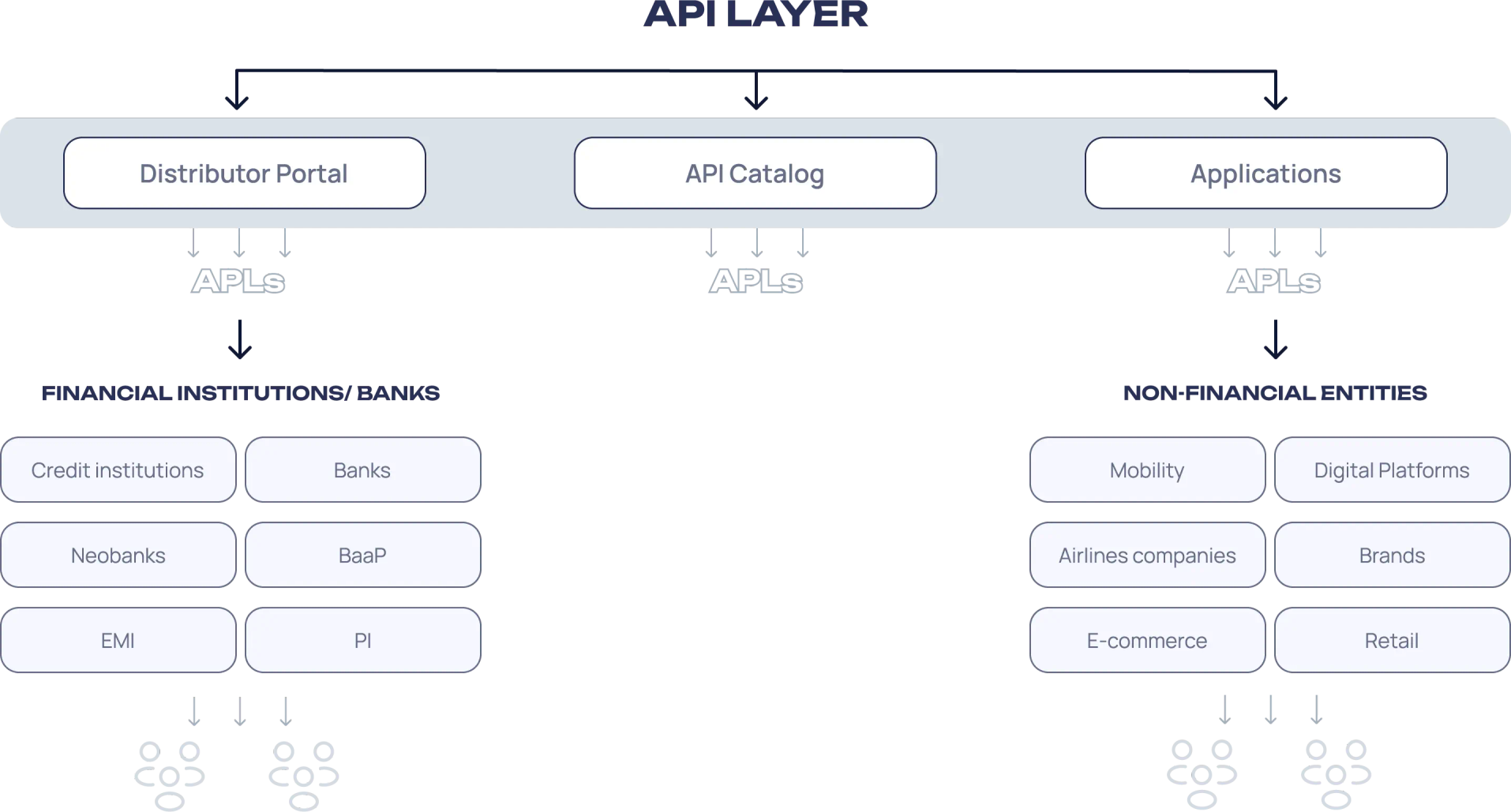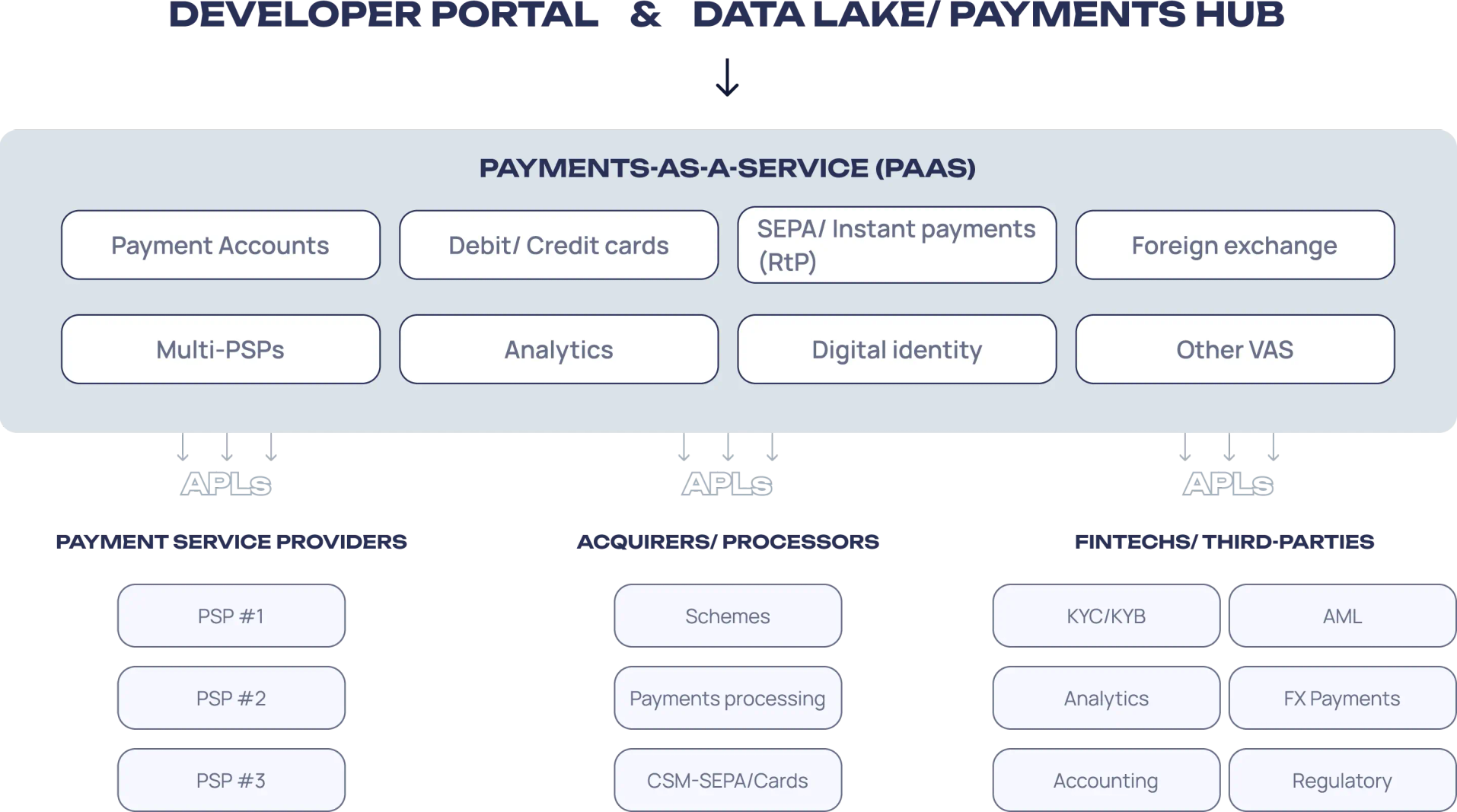PaaS – Platform as a Service
Banks and financial institutions (Credit Institutions, Neobanks, EMI, Banks, PI)
It has long been a practice for banks to outsource secondary functions, including the management of data, risk, hardware and software, support capabilities, ATM interactions, and third-party services.
By providing payment-related products without the need to invest a lot in one go, financial institutions of all kinds will be able to evolve and live up to customer standards.
Businesses can outsource payment services
Financial institutions, in particular, outsource core functions such as managing transactions, KYC and AML, technology, processing payments, and cybersecurity.

Challenges in the Financial Service Industry
The financial service sector is known for being slow to incorporate new technologies. This is mainly because most institutions use legacy systems to operate their payment infrastructure. Combined with needing to maintain complicated software ecosystems, it can become difficult to adopt evolved payment schemes or systems.
Solution
This is an issue addressed with our Platform-as-a-Service (PaaS) model. We remove the resource-intensive development phase and get you straight to modernity by providing your clients with our superior payment products and services. Our PaaS services can normally handle increased demand efficiently without downtime.
PaaS offerings are typically scalable with high availability
they vastly reduce the time it takes to bring the service to the market while also providing value to customers

An example of payment infrastructure organized to meet customer needs

What are the advantages of a PaaS system?
Integrating new payments
Enterprises like to have complete and unrestricted access to all the payment methods and the additional functions that come with them. As the market base expands, so does the need to protect your business against fraud. The incorporation of credit solutions and the reconciliation of accounts have become inevitable.
Enhancing compliance adherence
Even though complying with various standards takes a lot of resources, it’s still very important. With a PaaS platform, the third-party service provider is in charge of complying with ISO 27001, the Payment Card Industry Data Security Standard (PCI-DSS), and relevant data security standards.
Improved security and protection from fraud
To promote customer security, having a solid user onboarding system (including ID verification, access to surveillance-related lists, and the necessary user controls) and looking for suspicious activities is important. Third-party providers are better for ensuring that security protocols are fully implemented.
Increased robustness and scalability
Cloud-based platforms have certain advantages, such as automatic scaling and transparency when changes are introduced. Because of this, PaaS works effectively, even with heavier usage. It also helps ensure operational availability.
Customizable pricing
PaaS service providers are free to change how they price based on the product, the number of transactions to be processed, and the business size. PaaS is known for its high level of transparency regarding costs, whether fixed or transaction-based. With the pay-per-use model, clients with more moderate needs can still benefit.
Cost-effectiveness
PaaS assists in eliminating costs for both hiring tech experts and boosting technological capabilities. Since we own the hardware and software of the PaaS system, we also take ownership of its maintenance and management. There’s no need to maintain an in-house team, whether for PaaS technology management or product and feature development.
Bring new functions to the market more quickly
Banks need to dedicate a lot of time to overseeing the development of any new functions. With platform as a service, there’s already a product that you can use right away. So, introducing new features and removing redundant ones is much simpler.
